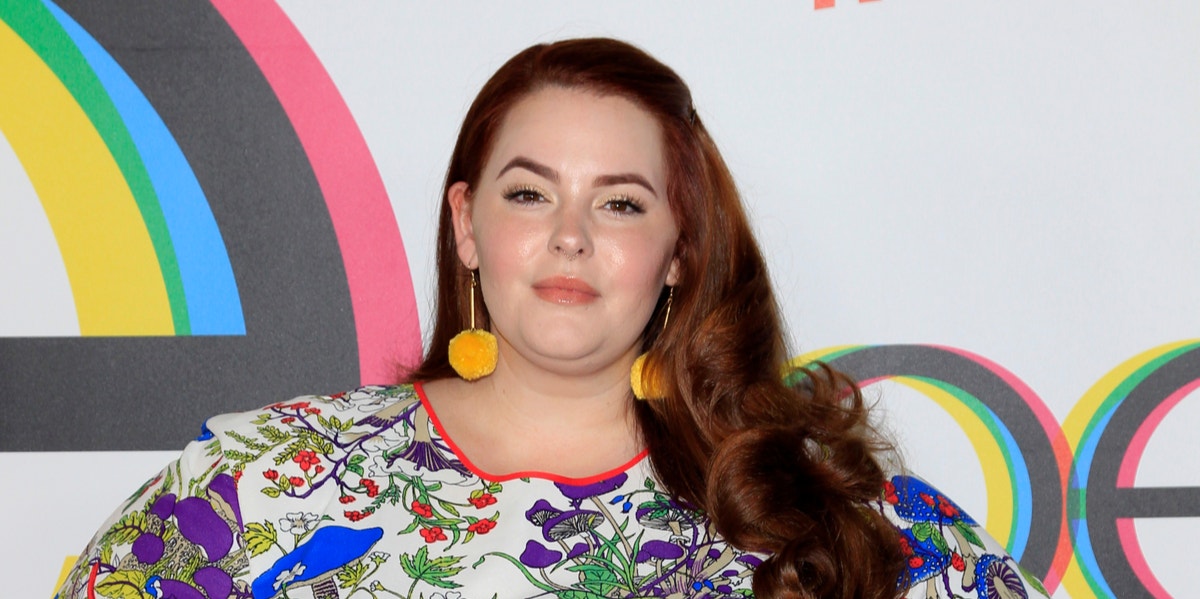Model Tess Holliday Announces She's Anorexic — Igniting A Tired Debate About Fat People & Eating Disorders
"I’m still not ashamed. I’m too damn happy for y’all to even come close to dimming my shine."
 Kathy Hutchins / Shutterstock
Kathy Hutchins / Shutterstock Model Tess Holliday is known for her outspoken and honest attitude.
This week, she's using her famous honestly and her platform to let the world know that she's anorexic.
"I’m anorexic and in recovery," the 35-year-old shared on Twitter. "I’m not ashamed to say it out loud anymore. I’m the result of a culture that celebrates thinness and equates that to worth, but I get to write my own narrative now. I’m finally able to care for a body that I’ve punished my entire life and I am finally free."
While much of the reaction was that of support, there was a lot of backlash and fatphobia, including a longstanding misunderstanding about anorexia and eating disorders.
"Not the 'but [you're] fat how are you anorexic' comments," Holliday tweeted, before explaining that her diagnosis is anorexia nervosa, a disorder characterized by restricted eating and a preoccupation with weight gain.
But the debate raged on.
We spoke to Dr. Elayne Daniels, a clinical psychologist who specializes in eating disorders, about why this medical and social discrepancy exists.
Can obese people be anorexic?
Well, first of all, let's make one thing clear right now: We need to kick the word "obese" to the curb where it belongs.
"The word “obese” is offensive," stresses Dr. Daniels. "It pathologizes and stigmatizes weight and is a cultural artifact."
Some people prefer the term "fat," and some people prefer that their size is left out of the equation entirely. So let's reframe the question.
What counts as anorexia?
As a disorder in the DSM-5, anorexia is diagnosed with the following criteria, according to the National Eating Disorders Association:
1. Restriction of energy intake relative to requirements leading to a significantly low body weight in the context of age, sex, developmental trajectory, and physical health.
2. Intense fear of gaining weight or becoming fat, even though underweight.
3. Disturbance in the way in which one's body weight or shape is experienced, undue influence of body weight or shape on self-evaluation, or denial of the seriousness of the current low body weight.
Without that diagnostic criteria, some people have struggled to get a diagnosis.
Can anyone be anorexic?
They absolutely can.
While society may picture anorexia in a certain box — underweight, female, young, white — that is by no means the only type of person the illness affects.
“'Atypical' anorexia is becoming increasingly recognized as a legitimate form of anorexia nervosa," says Dr. Daniels. "It is when a person has all the symptoms of anorexia nervosa yet remains in a body size that is larger than what is more typical."
In addition to that ever-present sense of fatphobia, both on a societal level and from the medical community, an ongoing issue is the continued reliance on the long-outdated concept of BMI as an indicator of health.
"BMI is not a fair indicator of an eating disorder," Dr. Daniels says. "The thoughts, feelings, and behaviors of a person in a large body can be just as disordered as the thoughts, feelings, and behaviors of a person in a small body."
Clinical psychologist Lesley Goth, PsyD, puts it quite bluntly: "BMI is a terrible indicator of anorexia as well as 'health.'"
Linking BMI to health is dangerous for anorexics and other people of any size.
"I've worked with plenty of women who don't look 'anorexic' but starve and deprive themselves to the point of mental and physical danger," Dr. Goth says. "It's even more dangerous for overweight people because no one takes them seriously and no one sees the diet/restriction behavior as unhealthy. They actually get praise and positive reinforcement!"
At the end of the day, another person's weight, size, and health are between themselves and their doctor — and, frankly, none of our business.
Good for Holliday for sharing her story and making people with "atypical" anorexia feel less alone.
Courtney Enlow is Editor of Pop Culture and Good News at YourTango. Her work has appeared at Vanity Fair, Glamour, Pajiba, SYFY FANGRRLS, Bustle, Huffington Post, io9, and others. She is the former co-host of the podcasts Trends Like These and Strong Female Characters.

